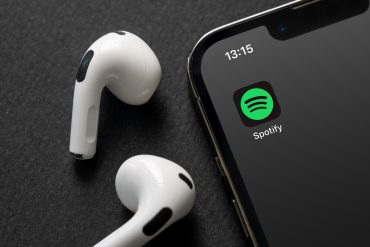
Spotify Bypasses Apple's 30% Fee After Court Forces App Store Changes
4 minute read

Streaming Giant Leads Developer Exodus from App Store Payments After Federal Court Victory
Key Facts
- Spotify released an updated iOS app allowing direct purchases through its website, bypassing Apple’s 30% commission following a federal court ruling
- The ruling found Apple in “willful violation” of a 2021 injunction regarding external payment options
- 40% of Spotify’s premium subscribers use iOS, representing potential savings of tens of millions of euros annually
Introduction
A federal court ruling against Apple’s App Store payment restrictions has prompted immediate action from Spotify, marking a significant shift in the mobile app economy. The streaming giant unveiled an updated app that enables users to make purchases directly through Spotify’s website, circumventing Apple’s long-standing 30% commission requirement.
Key Developments
District Court Judge Yvonne Gonzalez Rogers ruled that Apple violated a 2021 injunction designed to allow apps to offer alternative payment options. Spotify swiftly responded by releasing version 9.0.40, which displays specific plan prices and enables purchases through external channels. The update received Apple’s approval under revised App Review Guidelines.
Spotify can now retain 100% of revenue from subscriptions and purchases, minus third-party payment processing fees. The company has eliminated previously required “scare screens” that discouraged users from accessing external payment links.
Market Impact
With €13.2 billion in revenue for 2023 and 40% of premium subscribers on iOS, Spotify stands to save significantly by avoiding Apple’s commission structure. This development creates a precedent for other major developers, potentially affecting Apple’s high-margin services revenue.
Companies like Stripe are already providing guidance for iOS developers to implement third-party purchases, while Patreon prepares its own app update to capitalize on the ruling.
Strategic Insights
The court’s decision represents a broader trend of regulatory pushback against platform gatekeeping. Apple plans to both comply with and appeal the ruling, as noted in their statement to Bloomberg: “We strongly disagree with the decision. We will comply with the court’s order and we will appeal.”
Expert Opinions and Data
Spotify spokesperson Jeanna Moran emphasized the significance for the industry: “In a victory for consumers, artists, creators, and authors, Apple has approved Spotify’s U.S. app update.” The ruling stems from Epic’s antitrust battle, with CEO Tim Sweeney announcing Fortnite’s return to iOS and suggesting potential litigation withdrawal if Apple applies the framework globally.
The case has been forwarded to the District Attorney for Northern California, suggesting possible criminal contempt charges due to Apple’s “willful” non-compliance. Industry analysts view this as a landmark victory that could unlock billions in value for digital service providers.
Conclusion
The court ruling and Spotify’s swift implementation represent a fundamental shift in mobile app monetization. The changes enable direct consumer transactions and reduce platform dependencies, as evidenced by Ars Technica’s reporting. This development reshapes the relationship between app developers and platform providers, establishing new precedents for digital commerce.





